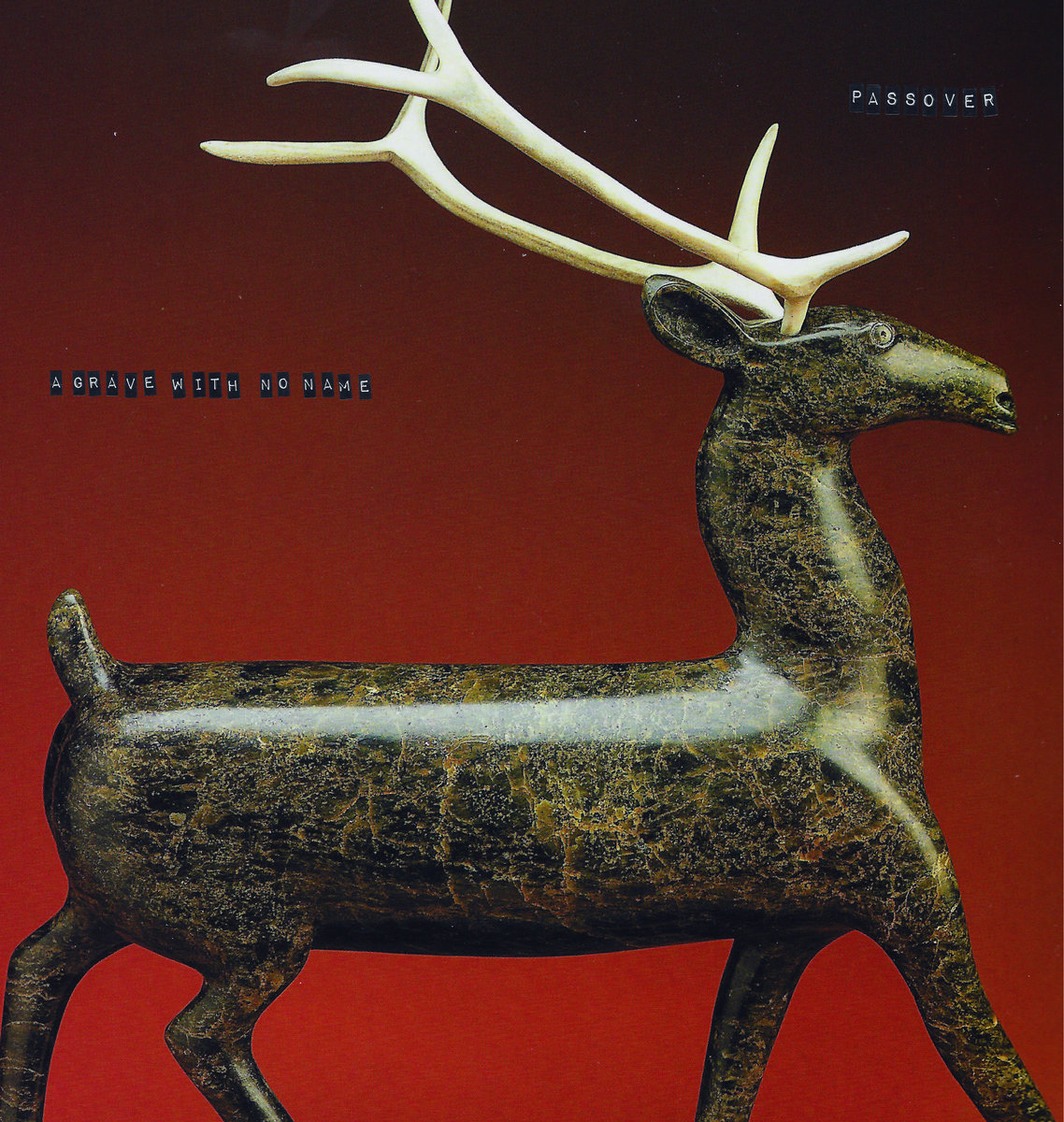(Forged Artifacts, released 19 Jan 2018)
London’s A Grave With No Name – the musical outlet of multi-instrumentalist and songwriter Alexander Shields – has, over the course of some 8 or 9 years, slowly but surely accommodated one 90s alt rock sound after another, almost like a living embodiment of the genre’s landscape. Shields’ debut Mountain Debris, from way back in the wilderness of 2009, deployed My Bloody Valentine fuzz, breathy Midwestern American emo, and Microphones/Mount Eerie’s lo-fi woodsy ambience (plus Smashing Pumpkins’ penchant for doing a bit of everything all at once). If nothing else, Passover carries on as Shields has done for nearly a decade – if a little stronger than ever on the Elverum factor.
Sure enough, Passover finds A Grave With No Name indulging the rustic – creaking guitars, lap steel embellishments, tortoise-paced drums – but its earthy signifiers of loss and faith (snow, trees, wind, cursed ground etc.) conjure a different landscape than anything you’ll find in the UK. Tracks like Blunt Knives and Wren respectively scale two peaks of post-Americana; one soaked in the murky reverb of Microphones’ The Mansion, the other like an electrified Appalachian hymnal by Acetone in its aching sense of ceremony. This territory feels wrought – dare I say it, a bit inauthentic in Shields’ case – but he undoubtedly is a master of auditory-topographical space, even if it’s a space to which we’ve been time and time again.
Musically, these songs can take the form of tone poems, letting the swaying guitars and warm tape hisses speak for themselves. But what sets Passover apart from Shields’ past recordings is the confessional, purposefully unrefined lyricism. There’s nothing new about stream-of-consciousness songwriting in indie folk (see A Crow Looked At Me, Benji, etc.) – and if anything, it acknowledges and attempts to doctor the art school pretentions of the genre’s previous decade, retaining punk’s immediacy in the process. This would certainly explain why Shields’ anecdotes like “once our work is done for the day / and our cups are filled with wine / I feel sleep gathering at the corners of my eyes” seem to fall short of some telling detail. Clearly, his memories and scenes weigh heavy on his mind, taking the form of talismanic occurrences – and boy, does Shields wants us to understand that. Still, it’s difficult to find his laconic but earnest storytelling as anything more than affected mysticism – and, frankly, sort of annoying at its worst.


Comments